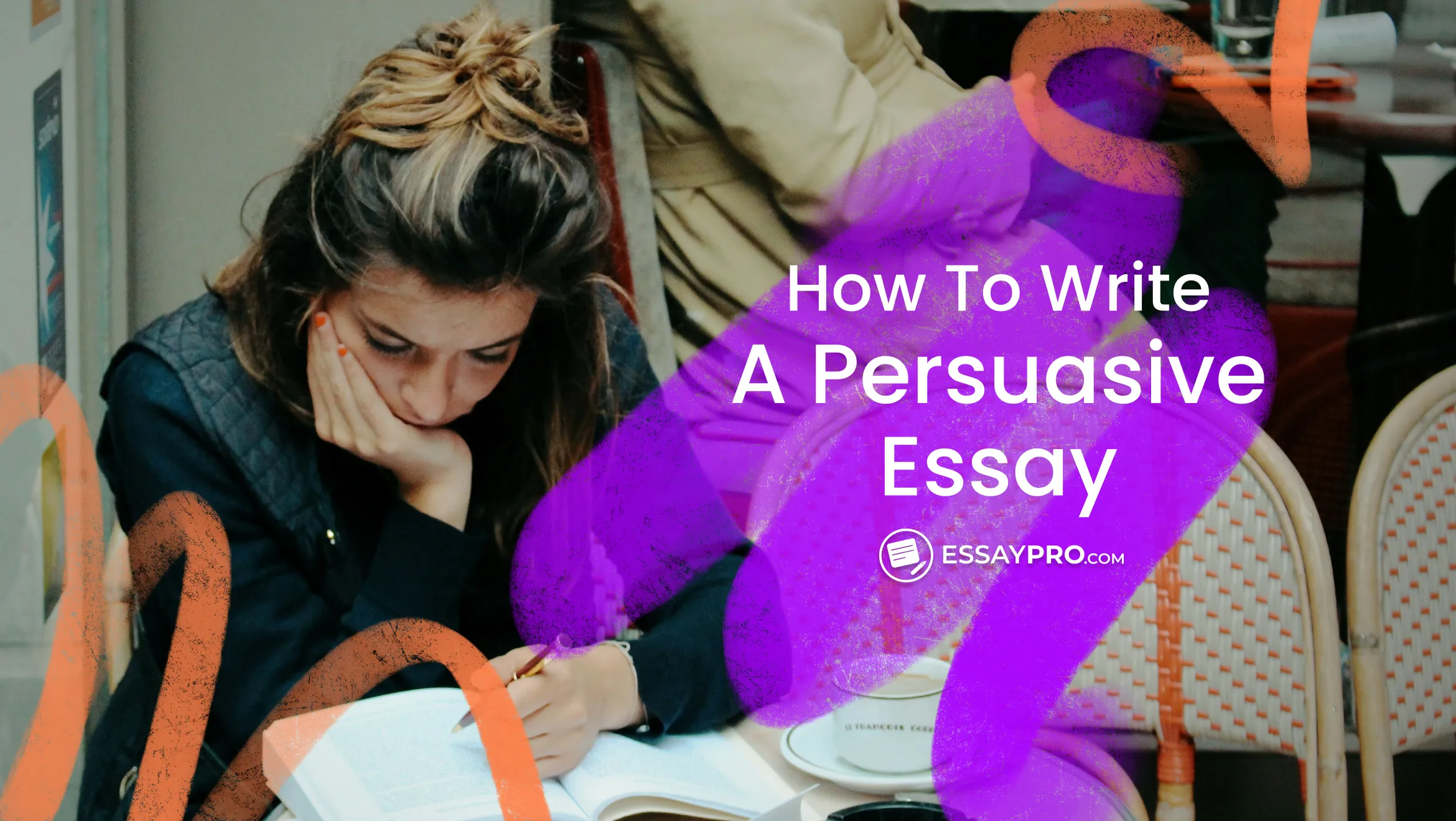Often, the only thing standing between a messy essay and one that actually makes sense is a well-placed transition. These little words might not seem like much, but they do a lot of heavy lifting. It's their job to carry your reader from one idea to another without making your writing feel like a jumble of thoughts thrown on a page. Used right, transition words sneak into your writing and help your ideas move. Here are some of the most common transition words for college essays:
- On the other hand
- In addition
- As a result
- For example
- Moreover
- In contrast
- Similarly
- Therefore
- Nevertheless
- At the same time
This article will walk you through the different types of transition words so you know exactly how to place them in any part of your essay. And if you still feel like trying to put together a jigsaw puzzle with no picture, EssayPro's reliable essay writing helper will craft well-organized papers without any overused or awkward phrasing. Sometimes, it takes a little professional help to make everything click.
What are Transition Words?
Transition words are terms or phrases that guide readers through your essays, one idea at a time. These tiny words have the responsibility of showing relationships between different points and organizing your arguments so the reader has no trouble following them. How many times have directional signs helped you understand what's coming next on the road when driving around? That's kind of what strong transition words for essays do for you.


Types of Transitions
There's more than one way to show the logical relationship between ideas in your essay. Transitional words can be placed in different parts of a paper: between sections, between paragraphs, and even within a single paragraph. Let's take a closer look:
- Between sections: These particular transition words are for the major shifts in focus. For example, you can use them when you're moving from background information to analysis.
Example: “Now that we’ve looked at how social media shapes public opinion, let's take a look at how that influence plays out during elections.” - Between paragraphs: These ones connect one paragraph's idea to the next. Get these transition words wrong, and your writing will feel like a series of unrelated chunks.
Example: “In contrast, the opposing viewpoint highlights the economic drawbacks.” - Within paragraphs: These smaller transitions connect thoughts within a single paragraph, especially when shifting from one sentence to another.
Example: “For instance, one study found that students using digital planners were more consistent in meeting deadlines.”
Types of Transition Words
Not all transition words serve the same purpose. Some add information, others show contrast, and a few are there to wrap things up. Using the right transition at the right time gives your writing rhythm and direction. Overusing the same ones, though, can make your essay feel mechanical.
That’s why variety and placement matter just as much as knowing which words to choose. That part becomes particularly important if you're applying to more competitive programs, like Australian nursing colleges or other academically demanding research fields. Here’s a quick look at the different types of transition words you’ll actually want to use in your writing:
Different Types of Transition Words for College Essays
Anyone aiming to get into one of the top 10 MBA colleges in world must know how to use the right transition words. This is not just because essays will read better (although that's important, too) but also because it will show the admissions officers that you can build clear, logical arguments.
The words you choose depend on what you're writing - there is no one-size-fits-all when it comes to transitions. Here's a list of transition words for essays so you know what works best for different types of academic writing:
Transition Words for Argumentative Essay
- On the contrary
- In support of
- Admittedly
- In other words
- That being said
- As a rebuttal
- For this reason
- It follows that
- Granted
- Nonetheless
Transition Words for Analytical Essay
- As illustrated by
- In light of
- This implies
- Specifically
- Notably
- It is evident that
- In consideration of
- To demonstrate
- According to the data
- Seen through this lens
Transition Words for Compare and Contrast Essay
- Likewise
- Similarly
- In contrast
- Whereas
- On one hand
- On the other hand
- While
- Although
- However
- Just as
Transition Words for Cause and Effect Essay
- As a result
- Therefore
- Because of this
- Thus
- Due to
- Consequently
- This led to
- Since
- For that reason
- In response
Transition Words for Descriptive Essay
- To illustrate
- In the distance
- Beyond
- Beneath
- Alongside
- As if
- In the foreground
- Nearby
- Faintly
- All around
Transition Words for Informative Essay
- To begin with
- According to
- In addition
- First and foremost
- For instance
- Furthermore
- In particular
- This includes
- To clarify
- Let’s take a look at
Transition Words for Expository Essay
- First
- Next
- Then
- In short
- To explain
- As mentioned earlier
- In conclusion
- To elaborate
- Most importantly
- As discussed
Transition Words for Different Parts of Essay
We've already said that where and how you use your transition words matters just as much as the actual words. But that doesn't mean that transitional phrases and words vary only from one essay type to another. As discussed in the Malissa Rodenburg podcast interview, the flow of your writing often depends on understanding context and purpose. In fact, different parts of your essay need different transitions: what's used in the introductory paragraph serves a completely different purpose than the one in the conclusion. Let's break things down by essay part so you'll know exactly what makes sense where.
Transition Words for Essay Introduction
- To begin with
- In this essay
- The purpose of this paper
- Let’s explore
- This topic focuses on
- As an introduction
- It is important to note
- One key question is
- To start
- This essay will examine
Transition Words to Start a Paragraph in an Essay
- First of all
- To continue
- Moving forward
- Building on that idea
- Let’s take a closer look
- One major point is
- At this point
- It’s also worth mentioning
- The next step is
- Another angle to consider
See also: Essay sentence starters.
Transition Words for First Body Paragraph
- First
- The first point to consider
- One primary reason
- To begin exploring
- This issue starts with
- A foundational concept is
- One significant idea is
- Initially
- To start things off
- Beginning with this perspective
Second Body Paragraph Transition Words
- Secondly
- In addition
- Another key point
- Let’s move to
- Building upon the previous idea
- Following that
- Adding to this
- The next consideration
- On a related note
- Expanding on the earlier point
Transition Words for Third Body Paragraph
- Third
- Additionally
- Another major aspect
- As we continue
- Taking this further
- In the same line of thought
- From here
- Yet another important factor
- Let’s now shift to
- On the same track
Transition Words for Last Body Paragraph
- Lastly
- Final point
- Wrapping up the main ideas
- One last aspect
- The last argument is
- At this stage
- To close the discussion
- The final consideration
- This last point shows
- In closing this section
Transition Words for Essays Conclusion
- In conclusion
- To sum up
- All things considered
- As a final thought
- Wrapping everything up
- In summary
- To bring this full circle
- The takeaway is
- Looking back
- This leads us to
How to Use Transition Words Effectively?
You can have the fanciest words that check all the right boxes on the page, but they won't do that much for you if you throw them in randomly. We keep talking about how important placement is when it comes to transition words for college essays, so this time, let's talk about some practical tips to help you actually use them well:
- Choose transitions based on your message. Are you adding a point, showing contrast, or wrapping things up? Think about that, and choose your words accordingly.
- Don’t use the same transition word over and over again. Mix it up so your writing doesn’t sound repetitive.
- Make sure the transition actually fits the relationship between the two ideas. If you’re showing contrast, “similarly” won’t work.
- Keep it natural. If a transition feels forced or stiff, rework the sentence instead of forcing the word in.
- Don’t overdo it. Not every sentence needs a transition. Use them when you’re shifting focus, connecting ideas, or clarifying structure.
- Always reread aloud. If the transition sounds smooth when you hear it, that’s a good sign that it works.
Stuck Between Ideas?
Let the professionals help connect your arguments and craft perfectly organized papers you can proudly submit.
How Do Transitions Work?
The power of smart transitions is their ability to help the reader follow your train of thought without getting off track. Here's how they work:
- They show relationships between ideas (cause and effect, contrast, addition, etc.)
- They signal shifts in topic, tone, or focus
- They help guide your reader from one part to the next without confusion
- They make your writing feel more structured, even when your ideas are complex
- They add clarity, which is especially helpful in academic writing, where logic matters
If we take a look at the same paragraph with and without transitions, we'll clearly see (and feel) the difference:
Without transitions: Online learning is more flexible than traditional classrooms. Students can choose when to study. Some people argue that it lacks personal interaction. It can be hard to stay motivated.
With transitions: Online learning is more flexible than traditional classrooms. Students can choose when to study. However, some people argue that it lacks personal interaction. As a result, it can be hard to stay motivated.
Let’s Tie It All Together
A few solid arguments and deep analysis aren't enough for proper writing. You also have to make sure everything you write connects, so the reader has no questions about how you got to the last word. When you use these quiet heroes with purpose, everything about your writing starts feeling much better. Here are a few important points to remember:
- Transitions help readers follow your train of thought
- Different essay types call for different types of transition words
- Placement is equally important as the words themselves
- Overuse can make your writing feel robotic. Balance is key
- Practice makes paragraphs smoother
If you ever feel stuck on the first page, EssayPro is here to make your life a little easier. And it's not just for English papers; our professionals can provide medical assignment help and support even with the most research-heavy topics. One platform with endless ways to get your writing where it needs to be!
FAQ
What are the Transition Words for College Essay?
Transition words for college essays are terms or phrases that connect your ideas and guide the reader through your argument. Words like in addition, on the other hand, as a result, etc., show relationships between different points of your paper.
What is a Good Transition Sentence in an Essay?
A good transition sentence connects one paragraph to the next; it reflects what was just discussed and hints at what’s coming. For example: “While the economic benefits are clear, the environmental consequences demand equal attention.” This type of sentence helps readers follow your train of thought without confusion.
What Is a Good Transition Word for the Third Body Paragraph?
A strong transition word for the third body paragraph should maintain momentum while introducing a new supporting point. Phrases like thirdly, furthermore, another important aspect, as we continue, or taking this further are all solid options.

Adam Jason
is an expert in nursing and healthcare, with a strong background in history, law, and literature. Holding advanced degrees in nursing and public health, his analytical approach and comprehensive knowledge help students navigate complex topics. On EssayPro blog, Adam provides insightful articles on everything from historical analysis to the intricacies of healthcare policies. In his downtime, he enjoys historical documentaries and volunteering at local clinics.
- Transitional Words and Phrases. (n.d.). The Writing Center. https://writing.wisc.edu/handbook/transitions/






